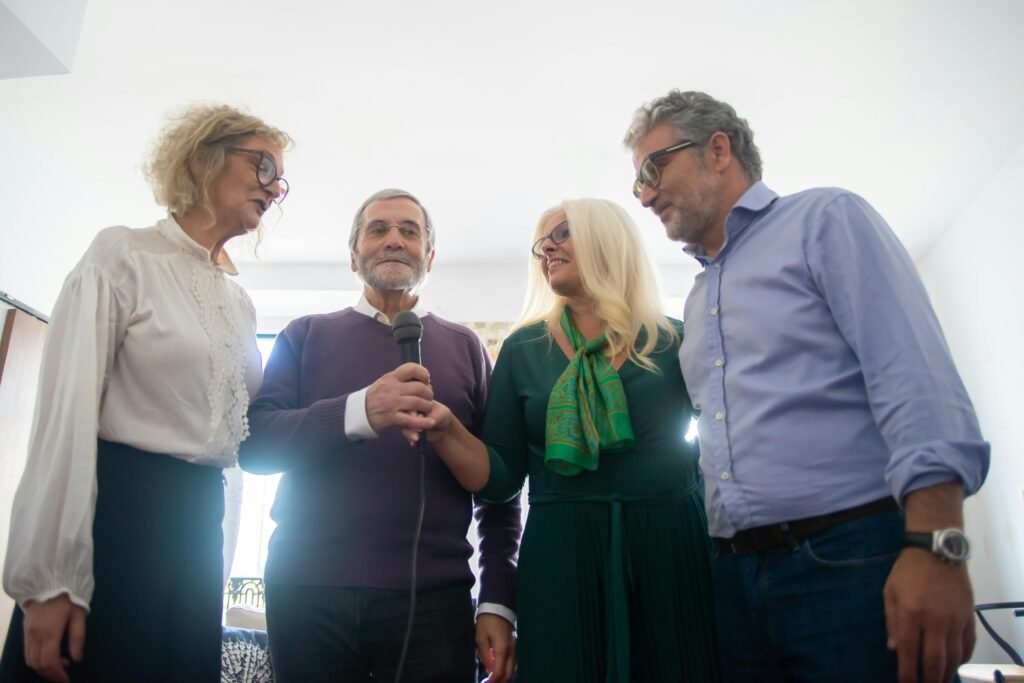Guide to attending art workshops for middle-aged people

Guide to Attending Art Workshops for Middle-Aged People
In our fast-paced digital world, many middle-aged adults are seeking meaningful ways to reconnect with their creativity, expand their social circles, and find moments of peace. Art workshops offer the perfect opportunity to achieve all these goals while developing new skills and perspectives. This comprehensive guide will help you navigate the world of art workshops and maximize the benefits they offer for adults in their 40s to 50s.
Why Art Workshops Are Perfect for Middle-Aged Adults
Art workshops provide unique benefits particularly well-suited to the middle-aged demographic. During this life stage, many of us are juggling career responsibilities, family obligations, and perhaps caring for aging parents. Art offers a much-needed respite from these demands.

Mental Health Benefits
Art workshops serve as powerful tools for stress relief and mental wellbeing. Engaging in creative activities helps reduce anxiety and depression by providing a healthy outlet for emotions .3 .8. The focused attention required when creating art acts as a form of meditation, allowing your mind to temporarily disconnect from daily worries .3.
For adults in their 40s and 50s, this mental break is invaluable. The process of creating art releases endorphins, those natural mood-enhancing chemicals that promote a sense of wellbeing and happiness .3. Many workshop participants report feeling rejuvenated and mentally refreshed after just a few sessions.
Social Connection Opportunities
One of the most valuable aspects of art workshops is the social environment they provide. As we navigate middle age, building new friendships can become more challenging, yet social connections remain vital for our wellbeing.
Art workshops create natural opportunities to meet like-minded individuals in a supportive setting .1 .14. The shared creative experience fosters connections that often extend beyond the classroom. Many participants form lasting friendships with fellow artists who share similar interests and life experiences .14.
Skill Development and Creative Growth
Middle age is an ideal time to develop new skills and explore creative avenues. Art workshops offer structured learning environments where you can:
-
Learn techniques from experienced instructors
-
Experiment with different mediums and styles
-
Develop your unique artistic voice
This period of life often brings a renewed desire for personal growth and self-discovery, making it the perfect time to embrace artistic learning .12.
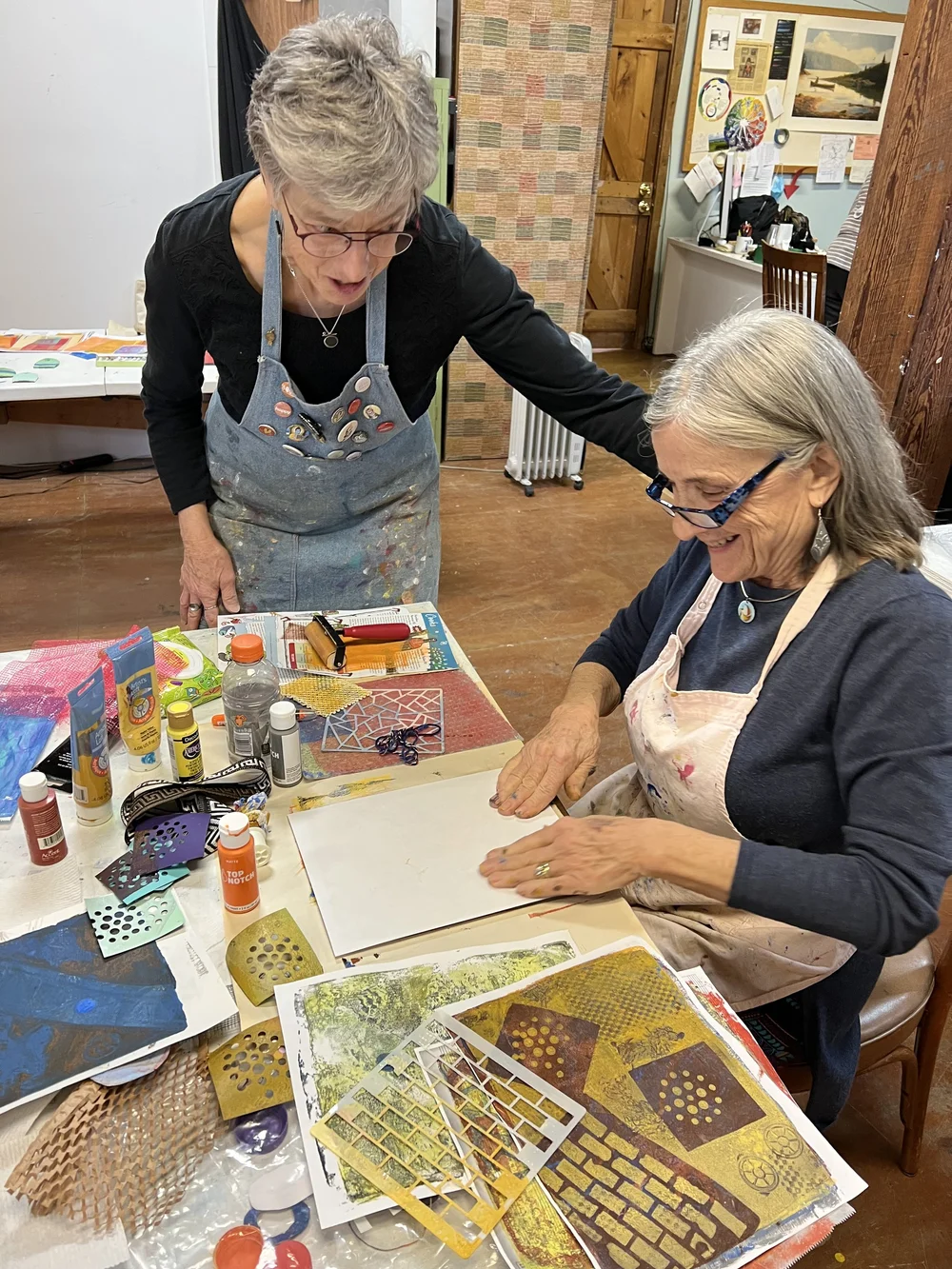
Choosing the Right Art Workshop
With numerous options available, finding the right workshop requires some consideration. Here’s how to select a workshop that aligns with your interests, goals, and lifestyle.
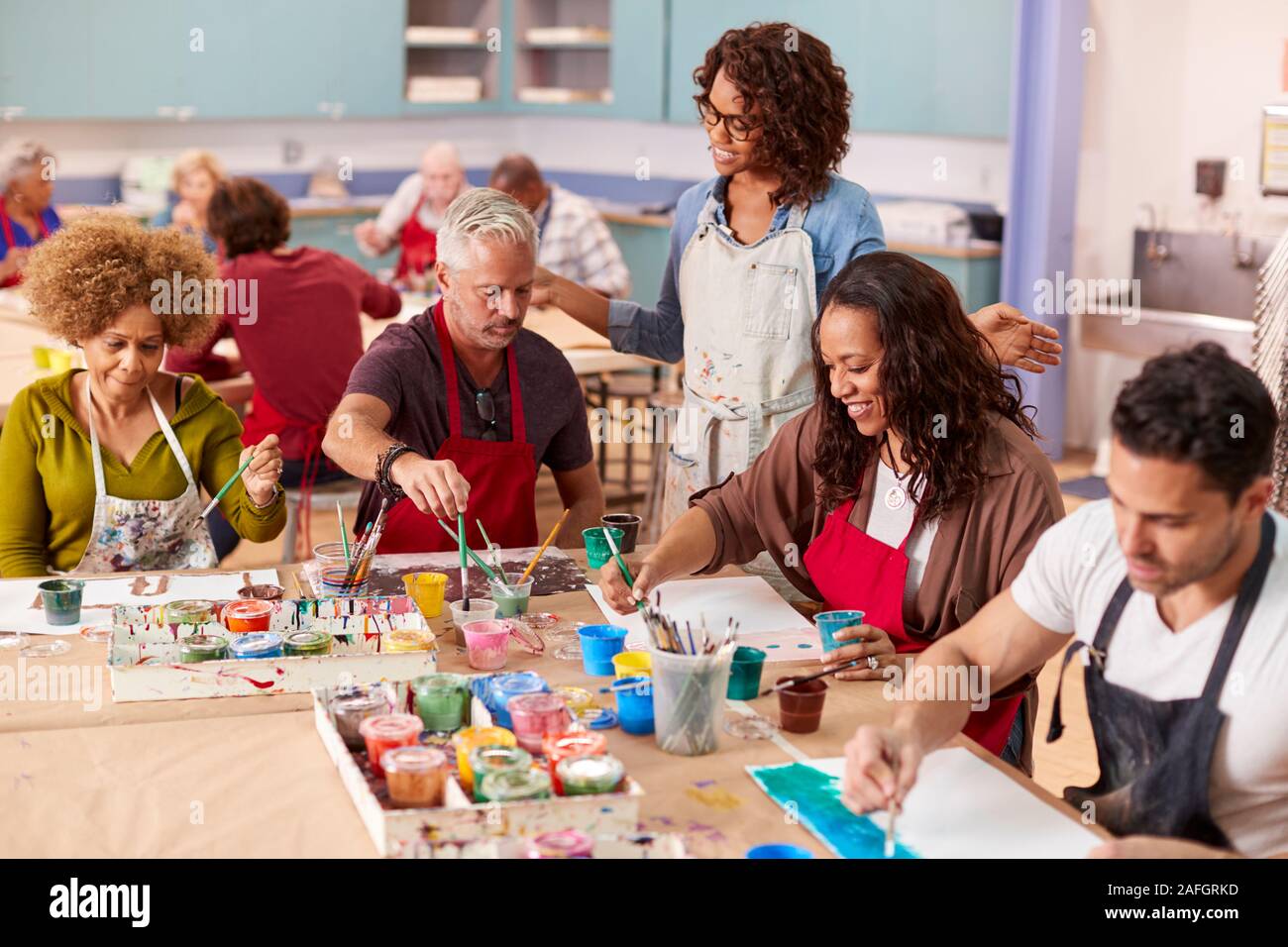
Identify Your Creative Goals
Before browsing workshop listings, take some time to reflect on what you hope to achieve. Are you looking to:
-
Learn specific techniques or skills
-
Explore a new medium
-
Use art as a form of relaxation
-
Create particular projects
-
Connect with others in your community .7
Clarifying your goals will help narrow your options and ensure you choose a workshop that meets your expectations .7.

Consider Your Experience Level
Be honest about your current skill level when selecting a workshop. Many classes are designed with specific experience levels in mind:
-
Beginner workshops: Focus on foundational techniques and basic concepts
-
Intermediate workshops: Build on existing skills and encourage experimentation
-
Advanced workshops: Concentrate on refinement and developing personal style .7
Don’t hesitate to contact workshop organizers if you’re unsure whether a particular class matches your experience level. Many instructors welcome participants of varying abilities and can adapt their teaching accordingly .7.
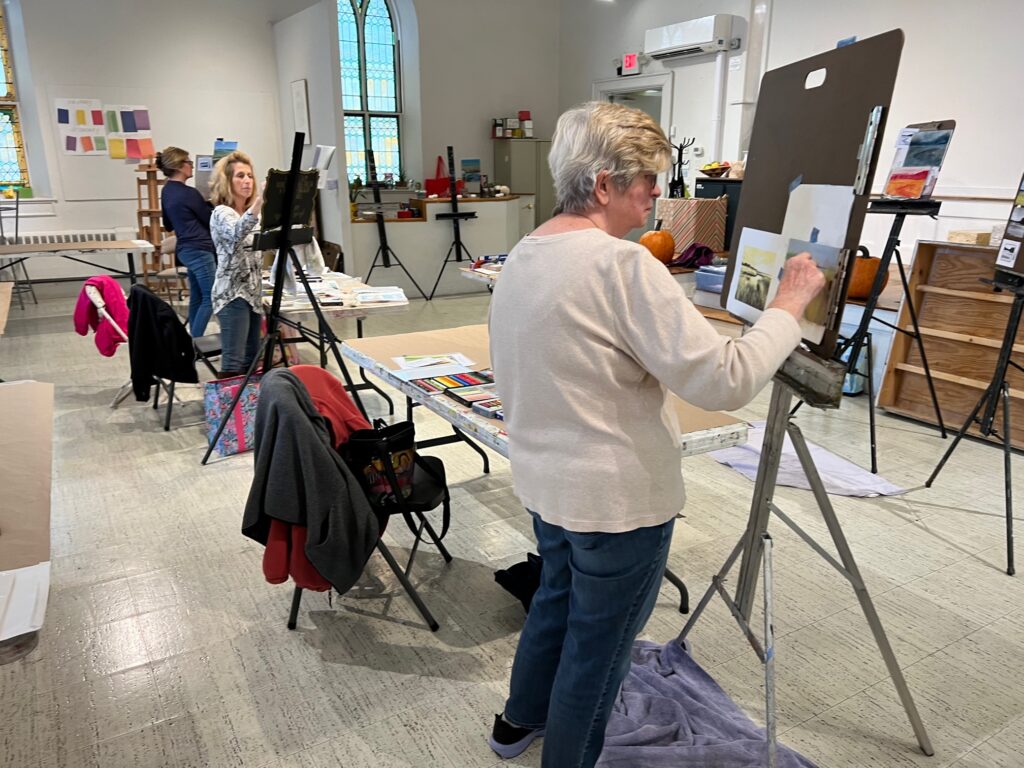
Explore Different Art Forms
Middle age is an excellent time to step outside your comfort zone and try something new. Consider exploring various art forms:
-
Painting (watercolor, acrylic, oil)
-
Drawing and sketching
-
Collage and mixed media
-
Mosaics and textile arts
-
Pottery and sculpture
Each medium offers unique benefits and challenges. For instance, mosaic workshops provide a tactile experience working with different materials and shapes, while collage workshops allow you to create meaningful compositions from everyday items without requiring advanced drawing skills .5.

Practical Considerations
When selecting a workshop, consider these practical factors:
-
Location: Choose a venue that’s convenient to reach
-
Schedule: Select times that fit around your work and family commitments
-
Duration: Decide between one-day workshops or multi-week courses
-
Cost: Consider the workshop fee, materials cost, and payment options
-
Class size: Smaller classes typically offer more individual attention .6 .7
Many workshops now offer flexible scheduling options to accommodate busy professionals, including evening and weekend sessions .11.
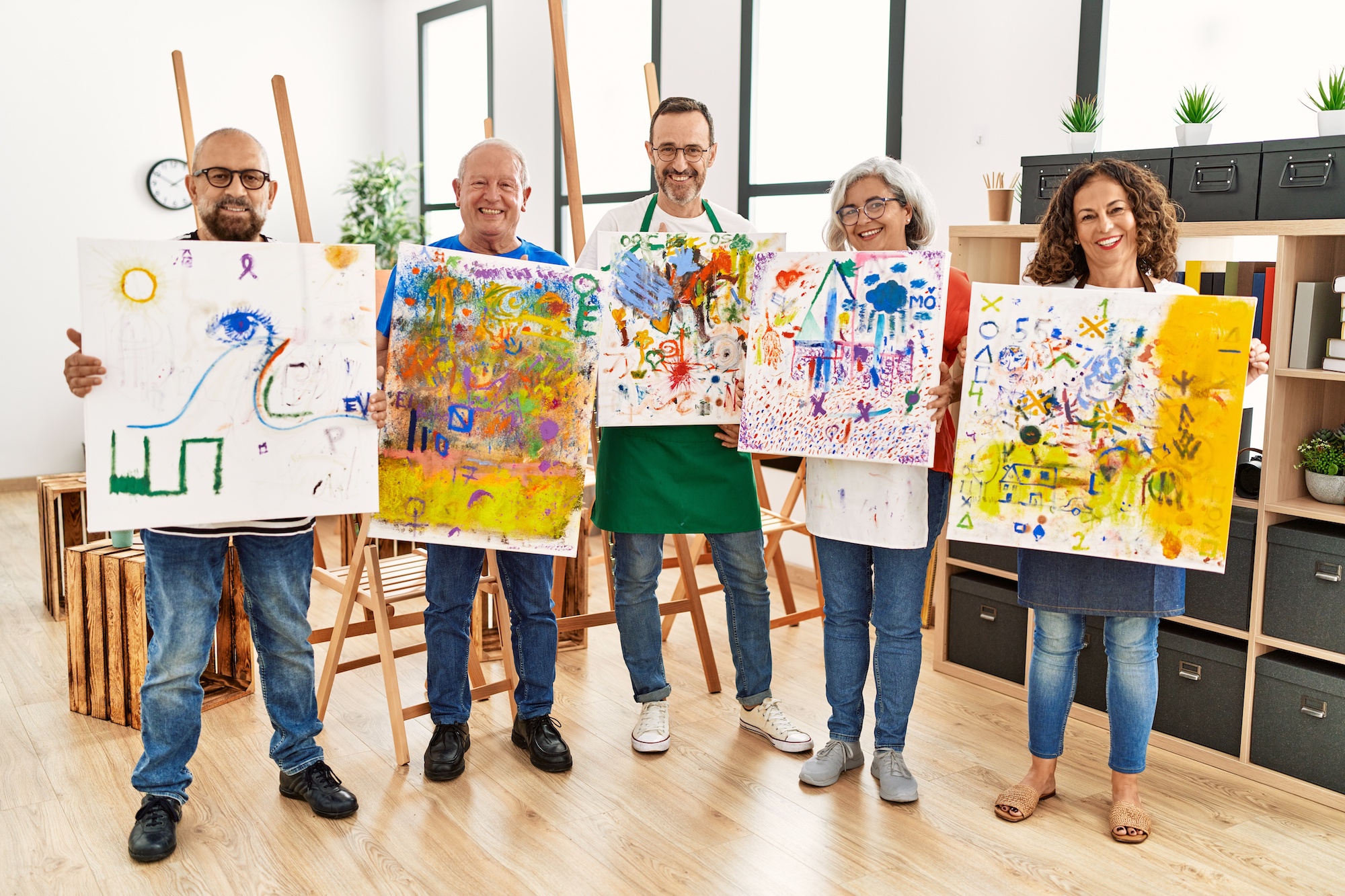
Preparing for Your Art Workshop
Proper preparation will help you get the most from your workshop experience.

Mental Preparation
Approach your workshop with an open mind and a willingness to learn. Remember that art is a process, and perfection isn’t the goal. Middle-aged beginners sometimes feel self-conscious about their lack of experience, but most instructors create supportive environments where experimentation is encouraged.
Set realistic expectations for yourself. You won’t master a new technique in a single session, but you will make progress and learn valuable skills that develop with practice .13.
Physical Preparation
Some art activities require physical stamina or fine motor skills. If you have any physical limitations or health concerns, communicate these to the instructor beforehand. Many techniques can be adapted to accommodate different needs.
Consider these physical aspects:
-
Some workshops require standing for extended periods
-
Certain techniques demand precise hand movements
-
Good lighting is essential for detailed work
-
Comfortable seating supports longer creative sessions .3 .


